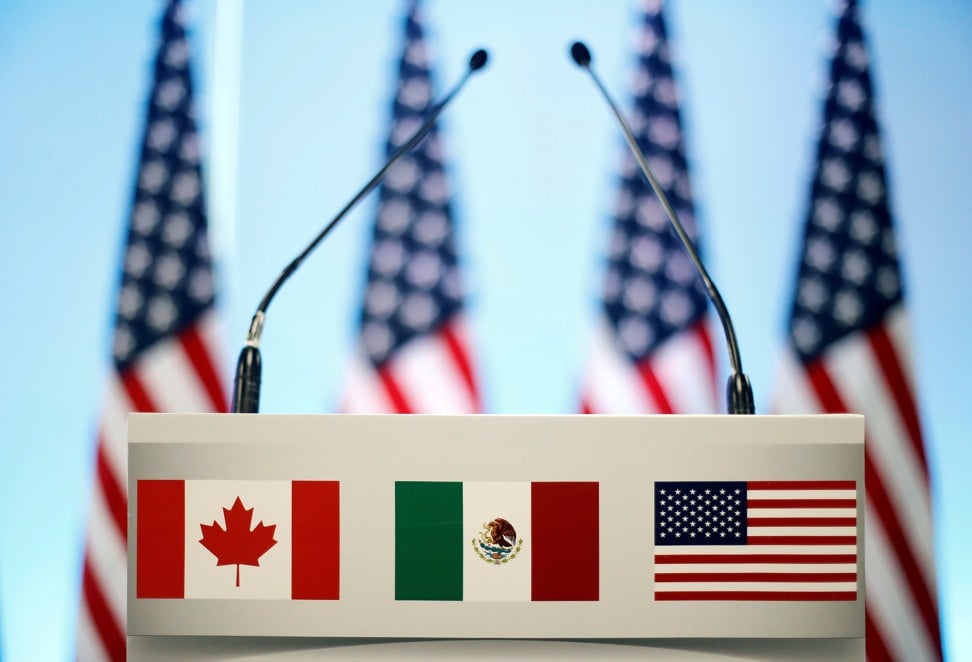
Did Ross Perot give us Donald Trump? His anti-free trade 1992 campaign certainly gave us the blueprint
- Perot was the original quotable outsider businessman to become a presidential front-runner through free trade scepticism
- His strange 1992 campaign may also have given us Bill Clinton’s presidency, setting the wheels in motion for Trump’s rise
One day NeXT’s head of sales came up to my friend after receiving a phone call from Perot. Like Perot, he had been a star IBM salesman, and he idolised the older man. My quotes aren’t exact, but close enough. “I have a new definition for ‘mixed emotions’,” he began, riffing on a common joke genre of the day. “Ross just called me. He’s never done that before. I was elated.” Then the punchline: “He spent a half hour telling me I’m doing a s****y job.”
It wasn’t the sales guy’s fault. Perot and other high-profile industry experts, who were part of a NeXT advisory board Jobs had formed to tap their expertise, had told Jobs clearly what guts and features to put in NeXT’s iconic cube-shaped computers, and how to price them. Jobs largely ignored them. Perot resigned in 1991, and NeXT was soon out of business.
His entry into the 1992 presidential race was unique. “You register me [on the presidential election ballot in all] 50 states” and I’ll run, he told the American people on Larry King Live one night in February. This required grass-roots organisations and collection of thousands of signatures in each state – a lot of work – done mostly by volunteers. Beholden to nobody because he was financing his own campaign, he said bluntly what Americans, sick of business-as-usual politicians, were thinking – “We own this country” – and they loved it. His early campaign had the febrile energy of Trump’s campaign 24 years later, without the nastiness or hate.
We didn’t know if he could win, but we knew it sure would be fun listening to the guy every day if he did. By June he was leading both George H.W. Bush and Bill Clinton in nationwide polls.
Then he did one of the strangest flip-flops in US politics. Actually, it was a double flip-flop. In July, he suddenly quit the race, offering a confusing explanation as to why. After his volunteers, who continued on anyway, completed his registration in all 50 states, he came back on October 1. It felt like getting back a girlfriend – the one you had waited for your whole life – who had broken your heart. You might take her back, but it wouldn’t be the same crazy love.
Trump can’t make America great again with Reagan’s script
“If you’re paying 12, 13, 14 dollars an hour for factory workers and you can move your factory south of the border, pay a dollar an hour for labour … have no health care … no environmental controls, no pollution controls and no retirement, and you don’t care about anything but making money, there will be a giant sucking sound going south,” he said. It was a famous line – and he was right.

The double flip-flop though, had doomed his chances. In November, Clinton won, with 43 per cent of the popular vote. Bush had 37.4 per cent, and Perot a little under 19 per cent. Clinton’s people called a “landslide”. Sure. It was the start of a slide into the ugly partisanship that has metastasised into the bitter divide we have in Washington today. Spoiled baby boomers, on both sides, took over from their serious parents and, indebted to groups with chequebooks, put making money ahead of just about everything else.
As populist politicians loosen the purse strings, what about the economy?
Clinton rammed Nafta through Congress, then worked just as hard to generate the next giant sucking sound as Beijing’s best advocate in the rich West for China’s entry into the World Trade Organisation. The economic damage from those trade agreements ultimately led to a White House with Donald Trump in it.
It’s hard not to wonder how different the world might be today if Perot hadn’t done the double flip-flop. If he had not dropped out in July, he had a shot at winning and we wouldn’t have had the giant sucking sound of Nafta or China being given permanent normal trade relations by Congress in 2000.
Then, if he had stayed out, he wouldn’t have taken 19 per cent of the vote, most of which, many believe, would have gone to Bush. In that case, we likely wouldn’t have had Bill Clinton as president, or Hillary Clinton as presidential candidate years later.
In either case, we might never have had Trump.
Whether you think that’s a good thing or a bad thing, it’s ironic that the election of a business person as president was shown to be possible by Perot, the famously patriotic Eagle Scout and Annapolis graduate, but only ended up coming to fruition under a guy who seems to have few of Perot’s better qualities. Perot’s impact on Americans’ views of the presidency has lasted a generation and is likely to continue. May he rest in peace – something that has eluded our political class since he promised to “take [out] the trash and clean out the barn” in 1992. Sooner or later, somebody’s going to come along and really do that.
Robert Boxwell is director of the consultancy Opera Advisors

